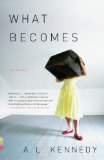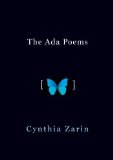Summary | Excerpt | Reviews | Beyond the book | Read-Alikes | Genres & Themes | Author Bio

Great Love Stories, from Chekhov to Munro
by Jeffrey EugenidesWhen was the last time you
read Chekov, Faulkner, Joyce, and Nabokov
all in one week? Maybe in college. But
certainly not Lorrie Moore, Raymond Carver,
Grace Paley, and Denis Johnson, too? If it
all sounds like a discordant, overwhelming
combination of writers, I'm here to tell you
it's decidedly not. Like a great mixtape,
My Mistress's Sparrow is Dead is a
conceptually coherent and artfully conceived
gathering of pieces, curated with deep
passion for its parts, but also with a
concern for how it resonates as a whole.
Jeffrey Eugenides picks both the orthodox
(Chekov's The Lady With the Little Dog
and Raymond Carver's What We Talk About
When We Talk About Love) and the
unexpected (How to Be An Other
Woman by Lorrie Moore; Red Rose,
White Rose by Eileen Chang; and
Something That Needs Nothing by Miranda
July) and spans over a century in his
selections, making this not only a great
collection of love stories, but more
importantly, one of the greatest anthologies
I've ever read. It's also worth noting that
the book is beautifully designed and bound,
and all proceeds go directly to fund the
free youth-writing programs offered by 826
Chicago (see sidebar).
Surprisingly, My Mistress's Sparrow
is a fluid read. Eugenides takes great care
with the order of these 27 stories,
considering how the style, plot, tenor, and
gravity of each will play against the ones
that follow and precede it. The table of
contents will make readers wonder how one
could possibly follow up James Joyce's
The Dead with a gritty story by Denis
Johnson, but reading them in their intended
order erases any doubt. Following Nabokov's
lushly musical prose in Spring in Fialta
("amethyst-toothed lumps of rock and the
mantelpiece dreams of seashells", or "a
melancholy brigand hawking local lollipops,
elaborate-looking things with a lunar
gloss") is Lorrie Moore's clean, searing wit
in How to Be An Other Woman ("When
you were six you thought mistress
meant to put your shoes on the wrong feet.
Now you are older and know it can mean many
things, but essentially it means to put your
shoes on the wrong feet.") The worlds don't
blend, the language doesn't marry or meld,
and it's that careful sequencing, a deep
breath between each story, that allows the
reader to look up for a moment and then dive
in to the next one. The result is
exhilarating and eye-opening, as Eugenides
invites us to read authors we might not pick
up otherwise, and to read them in a new
context, making even the oldest stories new
again. Chekov fans aren't typically cruising
The New Yorker for a new story by
Miranda July – and vice-versa – but chances
are by the end of this book you'll have
acquired several new additions to your old
favorites on the shelf. (I bought three
books after reading the first three
stories.)
With his artful editing, Eugenides has
conquered one of the biggest problems of the
short story collection. Reading anthologies
can often be a dust-collecting,
bedside-lingering process. Usually grouped
by time period, nationality, publication, or
award, they often serve primarily as a
reference, introduction, or catalog, and
editors are careful to make their
personalities invisible. This makes them
useful, reliable, and enjoyable for their
parts, but unremarkable as a whole. My
Mistress's Sparrow is exactly the
opposite. It's not intended as a
comprehensive survey of the greatest love
stories of all time. Nor is it a treatise on
love, as Eugenides warns in his excellent
introduction. ("Please keep in mind: my
subject here isn't love. My subject is the
love story.") Instead, these are the
selections of a reader; an impassioned,
expert, committed, and discriminating
reader; one who remembers that the best kind
of reading comes from picking favorites.
![]() This review was originally published in The BookBrowse Review in February 2008, and has been updated for the
January 2009 edition.
Click here to go to this issue.
This review was originally published in The BookBrowse Review in February 2008, and has been updated for the
January 2009 edition.
Click here to go to this issue.

If you liked My Mistress's Sparrow Is Dead, try these:

by A.L. Kennedy
Published 2011
Powerful and funny, intimate and profound, the stories in What Becomes capture the spirit of our times with dark humor, poignant hopefulness, and brilliant evocation of contemporary social and spiritual malaise.

by Cynthia Zarin
Published 2010
A dazzling story of obsessive love emerges in Cynthia Zarin's luminous new book inspired and inhabited by the title character of Nabokov’s novel Ada, or Ardor: A Family Chronicle, who was the lifelong love of her half brother, Van.
Great political questions stir the deepest nature of one-half the nation, but they pass far above and over the ...
Click Here to find out who said this, as well as discovering other famous literary quotes!
Your guide toexceptional books
BookBrowse seeks out and recommends the best in contemporary fiction and nonfiction—books that not only engage and entertain but also deepen our understanding of ourselves and the world around us.